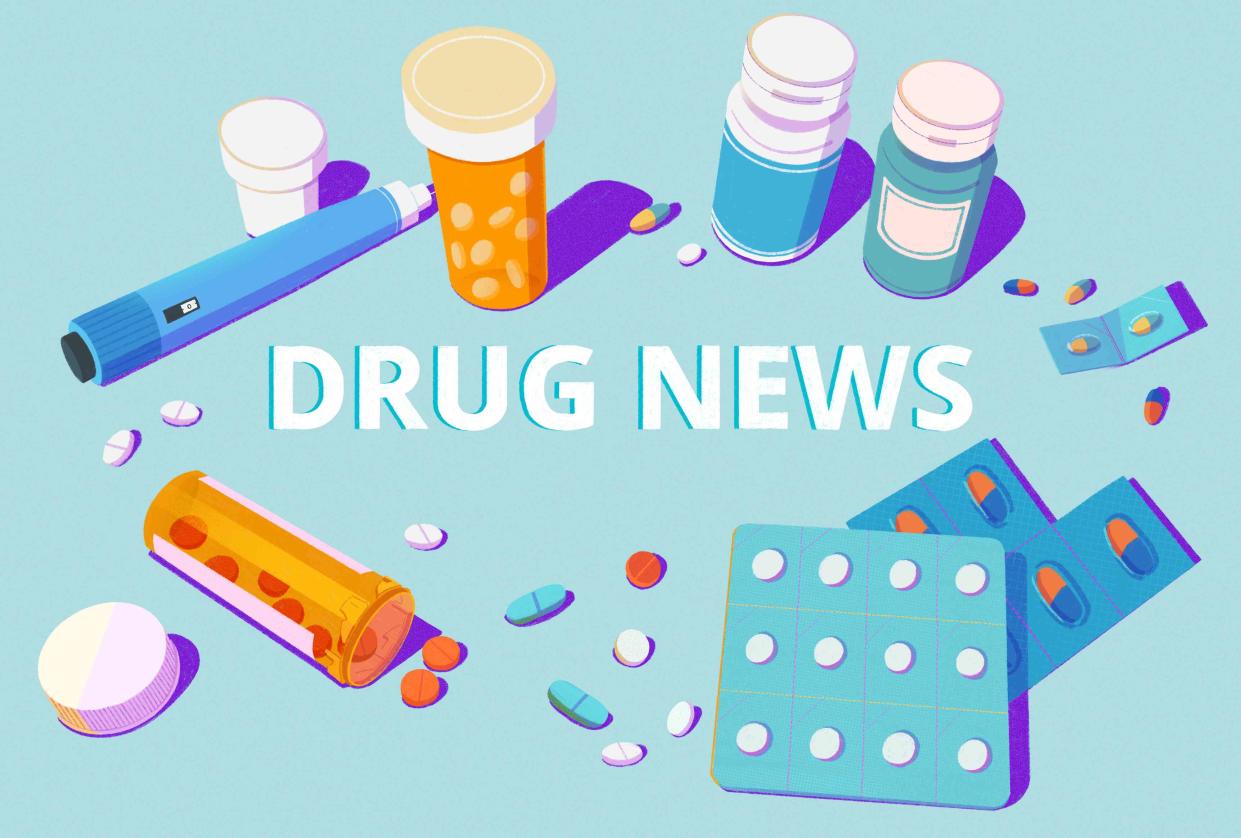These 10 Drugs Should Save Medicare Patients Millions After Price Negotiations

Verywell / Julie Bang
Fact checked by Nick Blackmer
Key Takeaways
For the first time, the federal government will negotiate with drug makers in order to reduce the cost of certain prescription drugs.
The first 10 drugs selected lack suitable generic alternatives.
These discounts only apply to people on Medicare.
When older adults are facing serious health issues such as heart disease, diabetes, or cancer, their diagnosis may be the least of their worries. Even after Medicare Part D benefits, some lifesaving drugs cost patients thousands out of pocket every year. Annual price increases make it an uphill battle—until now.
On August 29, the Biden-Harris administration announced the names of 10 prescription drugs that will be eligible for price negotiation by the Department of Health and Human Services on behalf of the Centers for Medicare and Medicaid Services (CMS). The federal government will negotiate pharmaceutical companies to reduce pricing.
As part of the Inflation Reduction Act (IRA) of 2022, 10 drugs were chosen for negotiation this year, with more to come in subsequent years. For millions of Americans who rely on these drugs, lowering drug prices may significantly impact their health and standard of living.
Related: How the Inflation Reduction Act Will Reduce Health Care Costs for Seniors
Drugs Chosen Impact Millions of Medicare Recipients
This is the first year that negotiation has been allowed for drug prices, and the lowered prices will only affect prescriptions purchased within the Medicare system. Many of the drugs treat the same things: diabetes, heart disease, arthritis, and cancer. Not only do these drugs treat very common ailments, but they all do so in a way that lacks a suitable generic alternative.
Drug Name | Use | Current Cost Per Medicare Enrollee | Number of Medicare Part D Enrollees using the drug in 2022–2023 |
Eliquis | Prevention and treatment of blood clots | $4,448 | 3.7 million |
Jardiance | Diabetes or heart failure | $4,487 | 1.57 million |
Xarelto | Prevention of blood clots, reduction of risk of coronary or peripheral artery disease | $4,511 | 1.34 million |
Januvia | Diabetes | $4,703 | 869,000 |
Farxiga | Diabetes, heart failure, chronic kidney disease | $4,091 | 799,000 |
Entresto | Heart Failure | $4,915 | 587,000 |
Enbrel | Rheumatoid arthritis, psoriasis, psoriatic arthritis | $58,148 | 48,000 |
Imbruvica | Blood cancers | $133,178 | 20,000 |
Stelara | Psoriasis, psoriatic arthritis, Crohn’s disease, ulcerative colitis | $119,951 | 22,000 |
Fiasp, Fiasp FlexTouch, Fiasp PenFill, NovoLog, NovoLog FlexPen, NovoLog PenFill | Diabetes | $3,316 | 777,000 |
The White House says that older adults paid $3.4 billion in out-of-pocket costs on these 10 drugs alone in 2022.
How Long Until the New Prices Take Effect?
The initial 10 drugs were chosen from a list of 50 of the most prescribed drugs in the Medicare Part D system. And while the news of negotiations is promising, this is just a first step towards lowering drug prices, according to Leigh Purvis, MPA, Prescription Drug Policy Principal for the AARP Public Policy Institute. In a recent webinar, she outlined the process.
Now that the drugs have been chosen, each drug maker will have until October 2, 2023, to sign agreements to participate in the program and submit data about their products and pricing. Patients will also have the opportunity to submit data about alternatives to these drugs, how the chosen drugs have impacted specific populations, and testify to unmet needs. After this, CMS will hold open listening sessions with patients to define their needs and concerns.
Related: Best Medicare Part D Providers
After the research portion of the process, CMS will set an initial price offer by February 1, 2024. At that point, companies will have the opportunity to counteroffer, and prices will be set and published by September 1, 2024. Patients should see cost savings starting in 2026.
“In terms of developing that initial offer, CMS has been very clear,” Purvis says. “It’s going to start with evidence related to therapeutic alternatives and then consider other factors like cost of research and development and production and distribution of that selected drug.”
Impact for Patients
Although still two years away, these patient cost-saving measures will do more than just put money back in their pockets, according to David Mitchell, founder and president of Patients for Affordable Drugs. Mitchell also has incurable blood cancer, and may be directly impacted by the negotiations. Eliquis, one of Mitchell’s medications, is up for negotiations.
“It’s widely understood that when people adhere to their drugs and use their drugs, they are healthier,” Mitchell told Verywell. “It actually saves our health care system money because they are being kept healthy.”
Although only 10 drugs are up for negotiations, Purvis said that savings will be felt across the Medicare population. With lowered prices for these drugs, CMS will be able to redistribute funds to offset other costs, lowering the financial impact across the board.
“When you are paying for high prescription drug prices, you’re either paying for them as a patient or paying through your premiums, or through your cost-sharing,” Purvis said. “They will see savings as a result of the negotiation, regardless of if they are taking the drug themselves.”
What This Means For You
Prescription drug price negotiations are just one portion of the IRA aimed at making care more affordable to older adults. Although broadly supported on both sides of the aisle, the moves aren’t without controversy. Several pharmaceutical companies have filed suits to stop the action, so there may be blockages along the way.
If the negotiations go smoothly, Medicare recipients should begin seeing more affordable drugs as soon as 2026. Even if you aren’t prescribed one of the affected drugs, the overall cost burden of specialty drugs should be alleviated, creating more opportunities to lower premiums.
Read the original article on Verywell Health.

